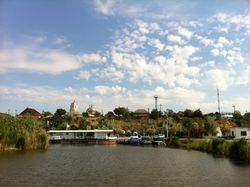Lagoon management plans developed
Located between land and sea, lagoons and estuaries mark the transition from freshwater to seawater. These dynamic and productive environments are increasingly under threat from urbanisation, industry, agriculture and recreational use. They also face the growing impacts of climate change. The ARCH (Architecture and roadmap to manage multiple pressures on lagoons) project worked with policymakers, local authorities and researchers to manage the challenges facing lagoons and estuarine coastal areas. The consortium conducted case studies at 10 selected lagoons and estuaries across Europe. At each site, project partners used workshops to develop a decision-making framework for managing current and future challenges. This was achieved by examining the social, economic and ecological states of the lagoon and linking them to a spatial planning methodology. The framework was used to draw up a state-of-the-lagoon report for each of the 10 case study sites, taking a step towards individual management plans by identifying multiple and combined problems. During the process, policymakers, scientists and managers were involved and invited to select the relevant solutions. From these reports, the ARCH initiative developed roadmaps for implementing solutions, which will involve all the local actors. In addition, it produced a management guide for coastal managers and policymakers as well as a European lagoon management handbook. ARCH also conducted Evaluation and Instruction workshops that involved international scientists and other relevant parties external to the project. Finally, two international conferences and a website disseminated the results to global audiences. Ultimately, the project's findings will be used to create applicable solutions to protect lagoon ecosystems and preserve Europe's natural heritage.
Keywords
Lagoon, lagoon management, ecosystems, climate change, estuaries, coastal



